Word identification Writing Worksheets for Ages 5-8
8 filtered results
-
From - To
Enhance your child's reading and writing prowess with our "Word Identification Writing Worksheets" designed for ages 5-8. These engaging and educational activities focus on helping young learners recognize, identify, and write essential words. Through fun exercises and illustrative contexts, children can expand their vocabulary, improve reading fluency, and bolster their writing skills. Ideal for at-home practice or classroom use, these worksheets support foundational literacy development, fostering a love for language in young learners. Prepare your child for academic success and a lifelong joy of learning with our expertly crafted word identification resources.
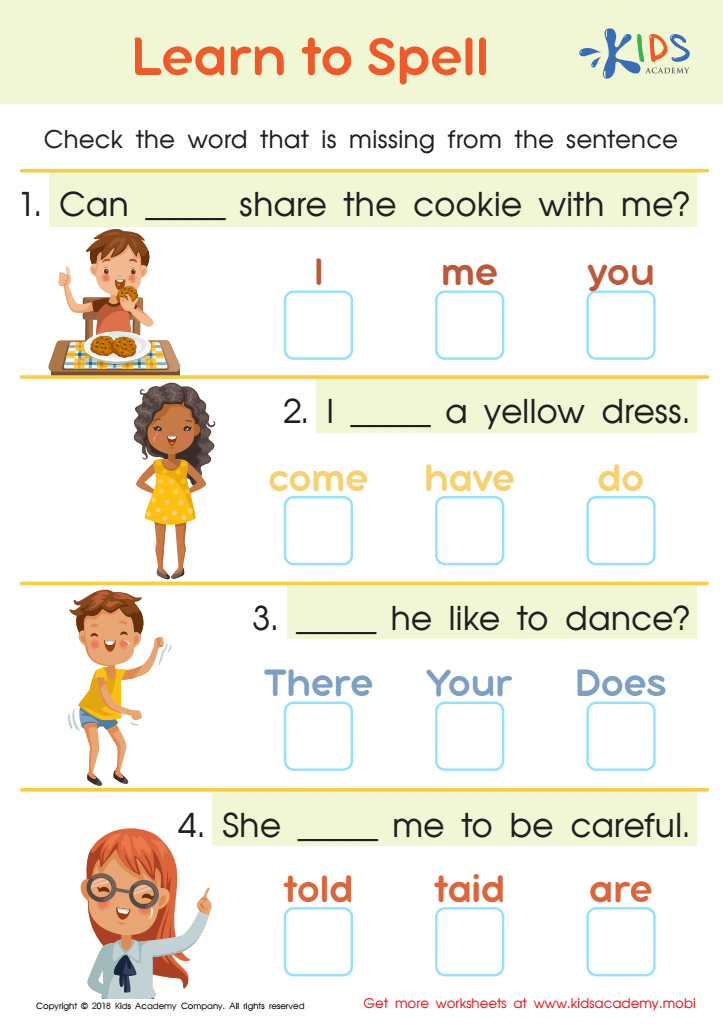

Learn to Spell Worksheet
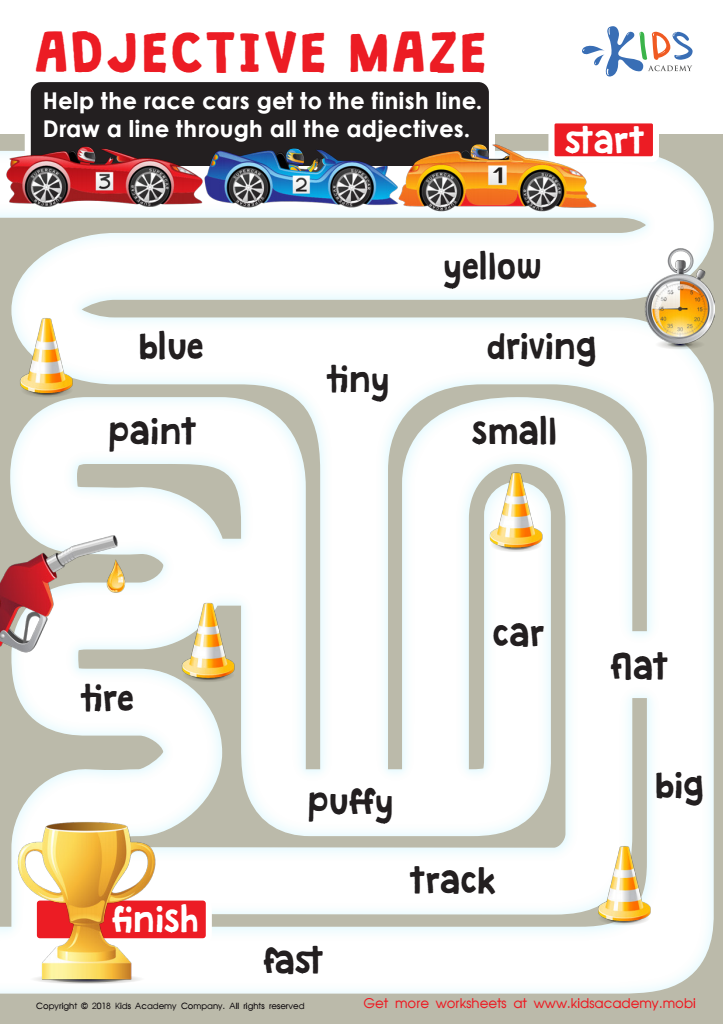

Adjective Maze Worksheet
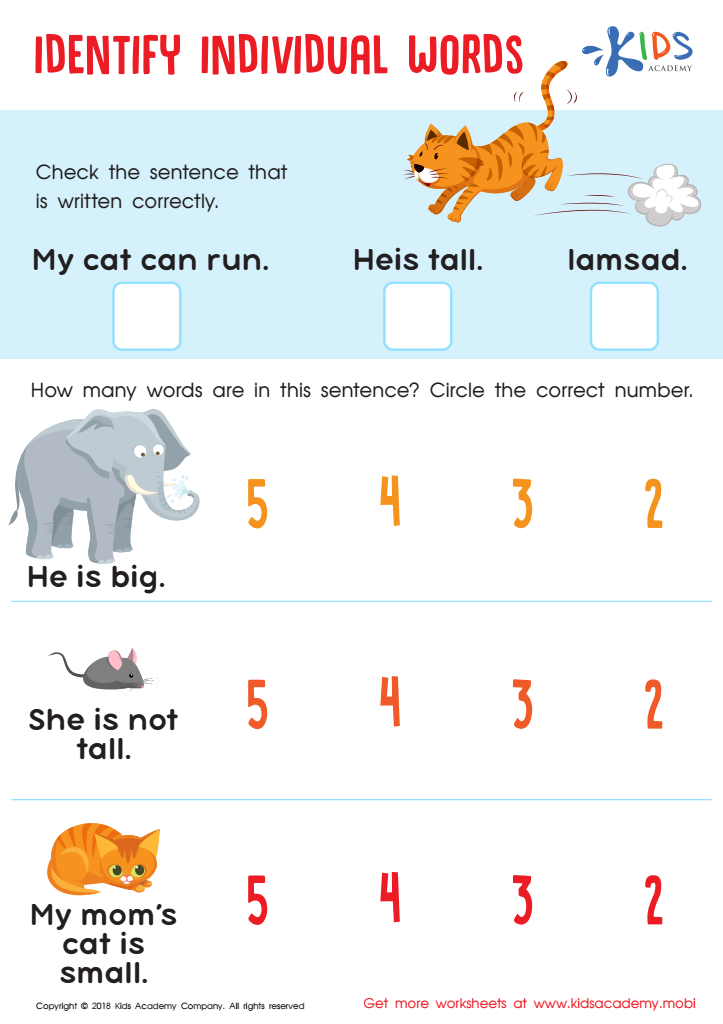

Identify Individual Words Worksheet


Phonics and Word Recognition: Assessment 1 Worksheet
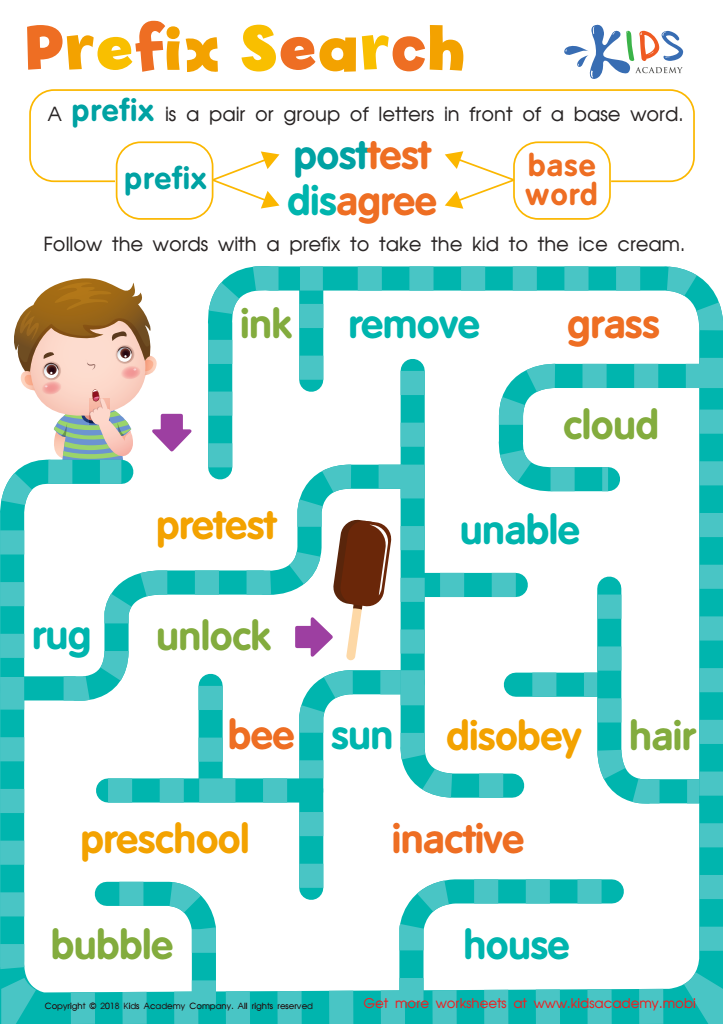

Reading: Prefix Search Worksheet


Phonics and Word Recognition: Assessment 1 Worksheet


Phonics and Word Recognition: Assessment 2 Worksheet
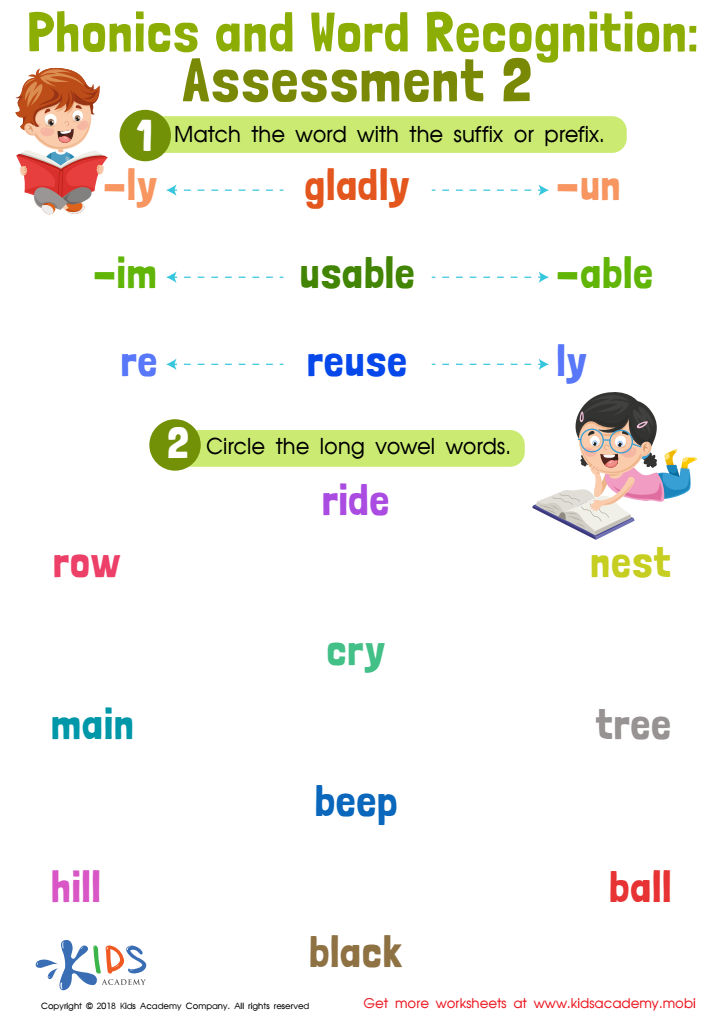

Phonics and Word Recognition: Assessment 2
Word identification and writing skills are foundational elements in the early education of children aged 5-8. During these formative years, children develop crucial literacy abilities that will serve as the building blocks for their future academic success. Learning word identification enables young students to recognize and understand words quickly, which fosters fluent reading. Fluent reading, in turn, enhances comprehension, allowing children to grasp new concepts and engage more deeply with the material.
Writing is another critical component as it encourages children to construct their thoughts clearly and cohesively. Early writing exercises support fine motor skill development, hand-eye coordination, and cognitive processes involved in organizing ideas. Additionally, writing activities promote vocabulary expansion, spelling accuracy, and understanding of grammatical structures.
For both parents and teachers, nurturing these skills offers numerous long-term benefits. High proficiency in word identification and writing not only contributes to academic achievement but also boosts children’s confidence and love for learning. Parents play a vital role by creating a supportive home environment rich with opportunities for reading and writing, while teachers provide structured yet engaging educational experiences. Together, they create a solid foundation for lifelong literacy, equipping children with the essential tools they need to navigate the increasingly text-based world confidently and successfully.

 Assign to My Students
Assign to My Students







.jpg)








